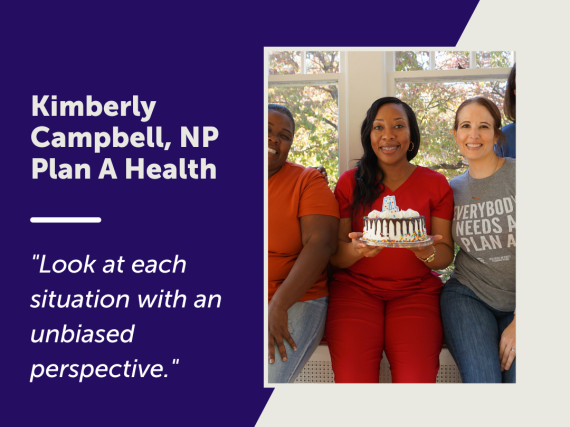Facing Health Disparities in Rural America
On average, nearly 60 million, or 1 in 5 Americans live in rural areas. Compared to their urban counterparts, rural areas are typically less populous and are often geographically isolated. Due to the remote nature of these rural regions, problems accessing critical health care services are often intensified. Rural Americans are generally at higher risk for serious illnesses and chronic diseases, with lower life expectancy and mortality rates; an injustice that further demonstrates rural-urban health disparities.
As we approach Rural Health Awareness Day, we cannot overlook the burden that is placed on these marginalized communities and must strive to bridge the gap. Health disparities encountered by rural Americans are significant and compromise the ability for residents to achieve health equity. It is important, now more than ever, that the welfare of rural Americans is prioritized, and that reproductive health justice is at the forefront of this movement.
Achieving desired reproductive health outcomes may feel like an obstacle course for rural Americans. Most rural regions face challenges that are exacerbated by the lack of public transportation. This may result in delayed appointments or may deter folks from obtaining care. As we know, many reproductive health needs are time sensitive, whether it is obtaining a contraceptive method, seeking treatment for an STI, or obtaining abortion related services. Access to clinics offering the full range of birth control methods or abortion care is among some of the greatest challenges, requiring patients to drive hours or cross state borders to receive treatment. In addition to transportation barriers, job opportunities are often limited, which may increase the likelihood of economic hardships for rural communities. Similarly, health care professionals may opt to obtain jobs in more urban regions and leave rural residents without access to an array of specialists.
In rural communities that are poverty stricken, individuals have conflicting desires to pursue educational opportunities and attain a steady income that will support the needs of their families when hardships arise. This is particularly difficult with the onset of the global pandemic and especially difficult for young people with competing priorities. If young people are not able to obtain reliable educational resources, whether in school or by a trusted health care provider, misinformation about sexual and reproductive health care may become an additional impediment in obtaining positive reproductive health outcomes. Rural regions are typically tight-knit communities, where social norms weigh heavily in decision making. While this strong sense of community is admirable and beneficial for a number of reasons, it may cause people, particularly young individuals, to battle stigma and shame in their decisions around reproductive health. Accurate, science-backed information and education are vital in not only aiding decision making, but helping individuals identify where services can be accessed and why those services are vital to achieving healthy outcomes.
As an eastern Kentucky native, I can attest to the disparities that threaten the health and well-being of rural communities. I can also speak to the resiliency, pride, and passion that has persisted in the community for generations. Although poor health outcomes in these regions are often attributed to individual negligence, we must shift these perceptions to a more holistic view to better understand the barriers that exist in accessing reproductive health services and information. We must look at current systems in place within rural communities while understanding the experiences of locals to exert best practices that will ensure that reproductive health justice is achievable, regardless of your zip code.
Kelsie Williams is the Project Director of All Access EKY, where she leads efforts to support access to the full range of contraceptive methods and quality reproductive health services. As a native of eastern Kentucky, Kelsie is passionate about increasing opportunities and empowering people to make decisions about their reproductive well-being and their future, with a particular interest in creating equity in rural, underserved communities. Kelsie is an MPH Candidate at George Washington University-Milken Institute School of Public Health.



